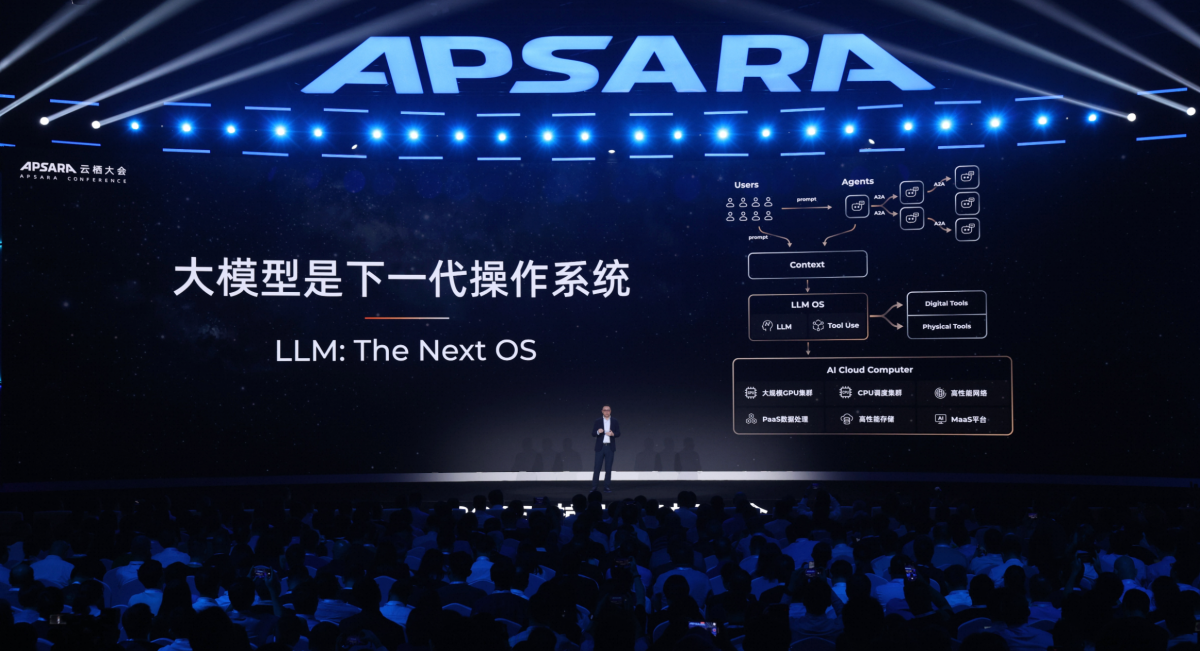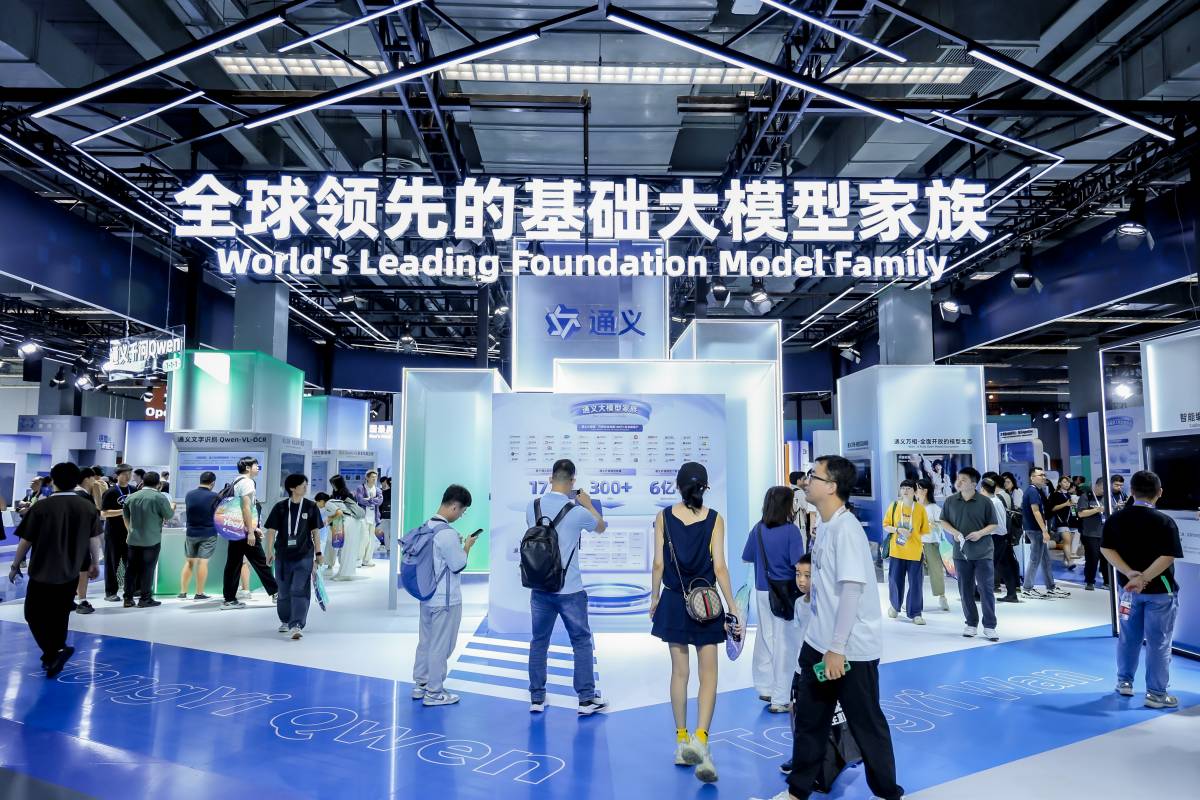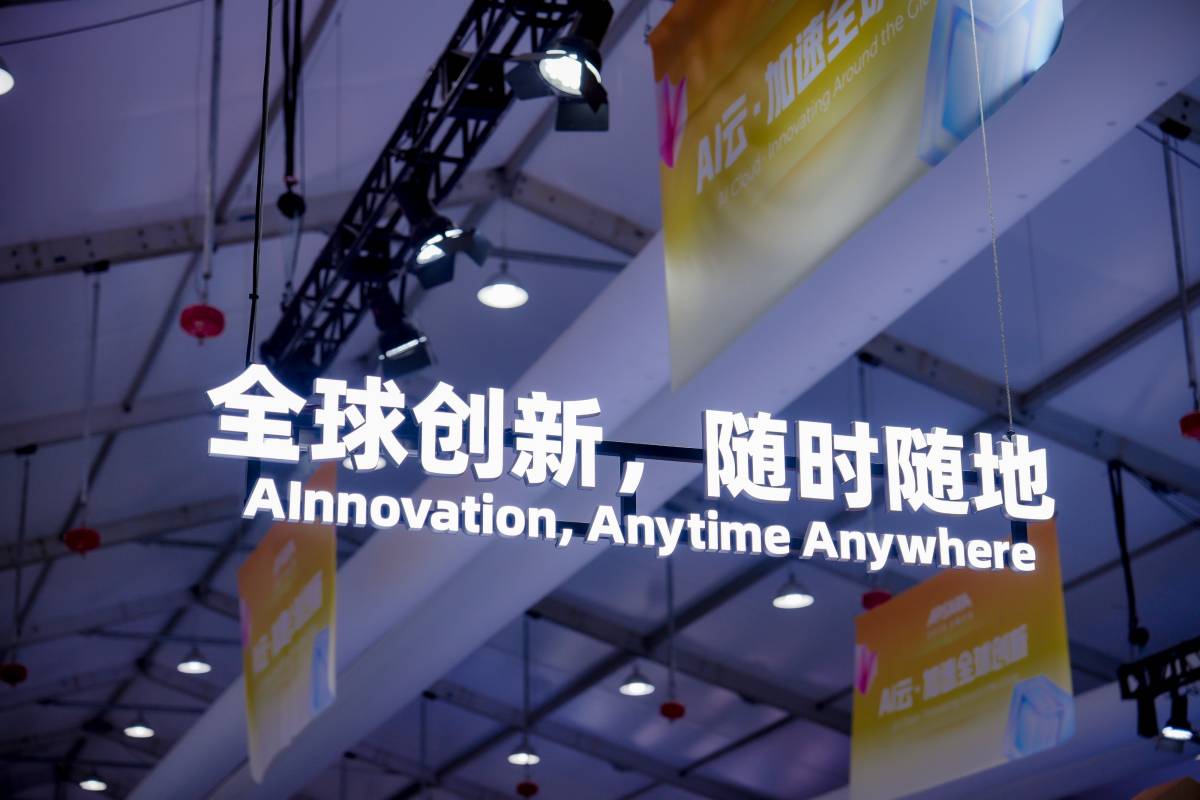Developer Offer
Try ImaginePro API with 50 Free Credits
Build and ship AI-powered visuals with Midjourney, Flux, and more — free credits refresh every month.
Alibaba Cloud Reveals Its Blueprint for the AI Future

At its Apsara 2025 conference, Alibaba Cloud laid out an ambitious global AI roadmap, committing to increase its investment beyond the previously announced three-year RMB 380 billion (US$53 billion) AI infrastructure program. The strategy includes a significant global expansion, the debut of its most powerful AI models yet, and substantial upgrades across its entire cloud portfolio.
Eddie Wu, Chairman and CEO of Alibaba Cloud Intelligence, described the initiative as a pivotal moment. “Alibaba Cloud is strategically positioned as a full-stack AI service provider, dedicated to delivering robust computing with maximized efficiency for training and deploying large AI models on the cloud,” he stated. “To underscore our long-term commitment to advancing AI, we will progress with our RMB 380 billion investment plan in AI and cloud infrastructure over the next three years.”
Wu also reaffirmed the company's dedication to open-source principles, adding, “We remain committed to open-sourcing Qwen and shaping it into the ‘operating system of the AI era,’ empowering developers around the world to build transformative AI applications.”
These announcements are set to make a significant impact on the industry. Let's explore the key takeaways.

Introducing the Powerhouse Qwen3 AI Family
The highlight of the event was the introduction of the new Qwen3 family of large language models. Leading the pack is Qwen3-Max, a massive trillion-parameter model designed for enterprise-grade applications and developers. It demonstrates exceptional performance across numerous benchmarks, particularly in code generation and agentic tasks.
Complementing the flagship model is Qwen3-Omni, a versatile multimodal model that can process text, images, audio, and video inputs to provide real-time, streaming responses in both text and speech. Its ultra-low latency makes it perfect for hands-free interactions in smart glasses, intelligent cockpits, and mobile devices.
Alibaba also expanded its portfolio with specialized models:
- Qwen3-VL: A vision-language model optimized for robotics and navigation.
- Qwen3-Coder: An upgraded model for faster and more precise code generation.
- Qwen3-Image-Edit: A tool for editing multiple images with enhanced visual consistency.
- Wan2.5 Preview: The latest visual generation model aimed at revolutionizing multimedia content creation.
To facilitate access, these models are available through Model Studio, Alibaba's AI development platform. The platform now includes the high-code Model Studio-ADK (agent development kits) to accelerate agent development. It also boasts new enterprise-focused features like Model Context Protocol (MCP) for seamless connectivity, RAG multi-modal fusion, and dynamic inference scheduling to tackle complex challenges.

Fortifying the Foundation for AI at Scale
To handle the demands of trillion-parameter models, Alibaba Cloud has executed a comprehensive overhaul of its infrastructure.
The new HPN8.0 network now provides up to 800 Gbps throughput, doubling the capacity of its predecessor for faster AI workload processing. Storage has been enhanced with Vector Bucket technology, which merges raw and vector data to support real-time search and retrieval-augmented generation (RAG).
The PolarDB database, now powered by Compute Express Link (CXL) technology, achieves 72% lower latency and 16 times greater scalability. Additionally, the Alibaba Cloud Container Compute Service (ACS) can now scale up to 15,000 pods per minute, offering the elasticity needed for large-scale enterprise deployments.
Security is also a priority, with the Cloud Threat Detection and Response (CTDR) solution now using five Qwen-powered agents to improve investigation accuracy to 74% and automate 70% of incident responses.
Beyond infrastructure, Alibaba Cloud is expanding its global presence. New data centers are planned for Brazil, France, and the Netherlands, with more facilities coming soon in Mexico, Japan, South Korea, Malaysia, and Dubai. Two new service centers in Germany and Indonesia will provide multi-language, round-the-clock support to international customers.
From Theory to Practice Real World AI Adoption
Alibaba Cloud's AI technology is already demonstrating its value in various industries. The company reported over 600 million model downloads for its Qwen and Wan series, which have spawned approximately 170,000 derivative models. More than 800,000 AI agents have been built on Model Studio, which is used by over one million corporate and individual users.
Here are a few examples of its real-world impact:
- Healthcare: AstraZeneca China is using a Qwen-based model to achieve 95% accuracy in detecting and summarizing adverse drug events, resulting in a threefold efficiency increase.
- Financial Services: Tokyo-based AI startup FLUX developed a 32-billion-parameter Japanese language model to provide financial professionals with more reliable, industry-specific insights.
- Digital Marketing: GladCube has integrated Alibaba's Wan visual generation model into its “Dra Vis” platform, allowing Japanese customers to create high-quality video content efficiently and at scale.

Charting the Course for Physical AI and Beyond
Looking ahead, Alibaba Cloud is focusing on Physical AI systems, where AI interacts with the physical world through robotics, autonomous vehicles, and industrial machinery.
A significant move in this direction is the integration of NVIDIA's full Physical AI software stack into Alibaba Cloud’s Platform for AI (PAI). This collaboration offers developers a comprehensive, cloud-native environment to accelerate the development of Physical AI solutions.
Alibaba Cloud's ultimate vision is a future where large AI models are deeply embedded in devices, acting like operating systems with persistent memory and seamless coordination between the cloud and the edge.
With its powerful foundation models, upgraded infrastructure, and expanding global network, Alibaba Cloud has built a comprehensive, full-stack platform that empowers organizations worldwide to build and deploy AI on their own terms.
Explore more details about the event in the Apsara Conference 2025: Press Kit.
Compare Plans & Pricing
Find the plan that matches your workload and unlock full access to ImaginePro.
| Plan | Price | Highlights |
|---|---|---|
| Standard | $8 / month |
|
| Premium | $20 / month |
|
Need custom terms? Talk to us to tailor credits, rate limits, or deployment options.
View All Pricing Details

